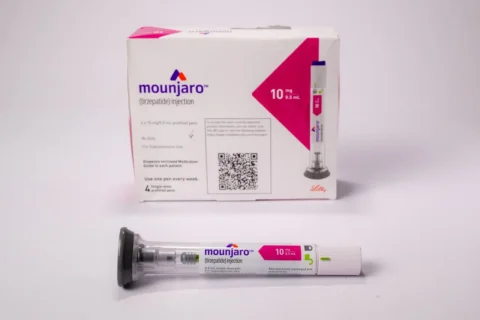Eating for heart health doesn’t mean one-size-fits-all. While the foundation of a heart-healthy diet is consistent—think whole grains, lean proteins, and plenty of fruits and veggies—your personal health goals and conditions can shape the specifics of your plan.
Whether managing diabetes, aiming for weight loss, or trying to lower cholesterol, your dietary needs may vary, but they all tie back to one essential goal: protecting your heart.
In this guide, we’ll explore how to tailor heart-healthy eating to your unique needs. We’ll give you practical tips and meal ideas to nourish your body and support your health journey.
Because when it comes to your heart, the best diet is the one that fits you.
Heart-Healthy Diet Plans for Different Needs
Let’s examine how a heart-healthy diet can be adapted to specific health goals, such as managing diabetes, achieving weight loss, or lowering cholesterol.
1. Heart-Healthy Diet for Diabetes Management
Living with diabetes requires careful monitoring of blood sugar levels, but the good news is that a heart-healthy diet naturally complements this goal. People with diabetes are at higher risk for heart disease, so combining strategies for both conditions is key.
Key Tips:
- Choose Complex Carbs: Opt for whole grains like oatmeal, quinoa, and brown rice, which release sugar slowly into the bloodstream.
- Load Up on Fiber: Fiber helps stabilize blood sugar and supports heart health. Include foods like lentils, beans, and leafy greens.
- Limit Added Sugars: Reduce sugary snacks and beverages, choosing naturally sweet options like berries or unsweetened yogurt.
- Healthy Fats: Swap saturated fats for heart-healthy fats from avocados, nuts, and olive oil.
Example Meal Plan for Diabetes and Heart Health:
- Breakfast: Oatmeal topped with blueberries and a sprinkle of chia seeds.
- Lunch: Grilled chicken salad with mixed greens, avocado, and balsamic dressing.
- Dinner: Baked salmon with roasted Brussels sprouts and quinoa.
2. Heart-Healthy Diet for Weight Loss
Weight loss significantly improves heart health, reduces strain on your cardiovascular system, and lowers blood pressure. A heart-healthy weight-loss plan focuses on reducing calorie intake while still providing the nutrients your body needs.
Key Tips:
- Prioritize Protein: Lean proteins like chicken, fish, tofu, and beans help keep you full longer.
- Focus on Portion Control: Use smaller plates or measure servings to prevent overeating.
- Fill Half Your Plate with Veggies: Non-starchy vegetables are low in calories and packed with nutrients.
- Watch Liquid Calories: Avoid sugary drinks and stick to water, unsweetened tea, or sparkling water.
Example Meal Plan for Heart-Healthy Weight Loss:
- Breakfast: Scrambled eggs with spinach and a slice of whole-grain toast.
- Lunch: Turkey and avocado wrap with a side of baby carrots.
- Dinner: Grilled shrimp with steamed broccoli and cauliflower rice.
3. Heart-Healthy Diet for Lowering Cholesterol
High cholesterol is a major risk factor for heart disease, but dietary changes can make a big difference. A cholesterol-focused heart-healthy plan emphasizes foods that naturally lower LDL (“bad”) cholesterol while boosting HDL (“good”) cholesterol.
Key Tips:
- Increase Soluble Fiber: Foods like oats, apples, and beans bind to cholesterol and help remove it from your body.
- Choose Plant-Based Proteins: Swap red meat for lentils, chickpeas, and tofu to reduce saturated fat intake.
- Add Omega-3 Fatty Acids: Fatty fish like salmon and tuna help improve cholesterol levels.
- Limit Trans Fats: Avoid fried and processed foods that contain hydrogenated oils.
Example Meal Plan for Lowering Cholesterol:
- Breakfast: Whole-grain cereal with almond milk and sliced banana.
- Lunch: Lentil soup with a side of whole-grain crackers.
- Dinner: Grilled salmon with a side of sautéed spinach and sweet potato wedges.
Universal Tips for a Heart-Healthy Lifestyle
No matter your specific goal, these strategies can support a healthier heart:
- Eat the Rainbow: Include a variety of colorful fruits and vegetables for a range of nutrients.
- Cook at Home: Preparing meals at home gives you control over ingredients and portion sizes.
- Limit Sodium: Too much salt can raise blood pressure. Use herbs and spices to flavor food instead.
- Stay Hydrated: Proper hydration supports circulation and overall health.
- Be Active: Pair your diet with regular physical activity for the best results.
How QuickMD Can Support Your Heart Health Journey
At QuickMD, we’re here to make managing your health as simple and accessible as possible.
While creating your own diet plan might feel overwhelming, our telemedicine services can help in impactful ways:
- Weight-Loss Support: Losing excess weight is one of the most effective ways to protect your heart. QuickMD offers consultations and prescriptions for weight-loss treatments like Ozempic, Wegovy, and compounded semaglutide—making it easier to achieve your goals.
- Chronic Condition Management: If you’re managing diabetes, high cholesterol, or other heart-related conditions, our licensed providers can help with prescriptions and expert advice tailored to your needs.
- Convenience and Accessibility: Skip the hassle of in-person appointments. QuickMD lets you meet with a provider from the comfort of your home, with fast, same-day appointments available.
FAQs About Heart-Healthy Diets
What foods should I avoid for heart health?
Limit processed foods, trans fats, and high-sodium items like chips, canned soups, and frozen meals.
Can I combine a heart-healthy diet with weight-loss goals?
Absolutely! Many heart-healthy foods, like vegetables, lean proteins, and whole grains, are naturally low in calories and support weight loss.
How does exercise factor into a heart-healthy plan?
Exercise complements your diet by improving cardiovascular health, reducing cholesterol, and supporting weight loss. Aim for at least 150 minutes of moderate activity per week.
Are there specific foods that lower cholesterol quickly?
Oats, fatty fish, nuts, and legumes are excellent for lowering LDL cholesterol levels.
Can QuickMD help with heart health medications?
Yes! QuickMD providers can prescribe medications for cholesterol, diabetes, and weight loss, helping you meet your heart health goals.
Final Thoughts
Your heart works hard for you every day—nourish it with a diet that meets your unique needs. Whether you’re managing diabetes, aiming to lose weight, or focusing on cholesterol, a heart-healthy plan tailored to your goals can make all the difference.
Schedule your QuickMD consultation today and take the first step toward a healthier, happier heart.




